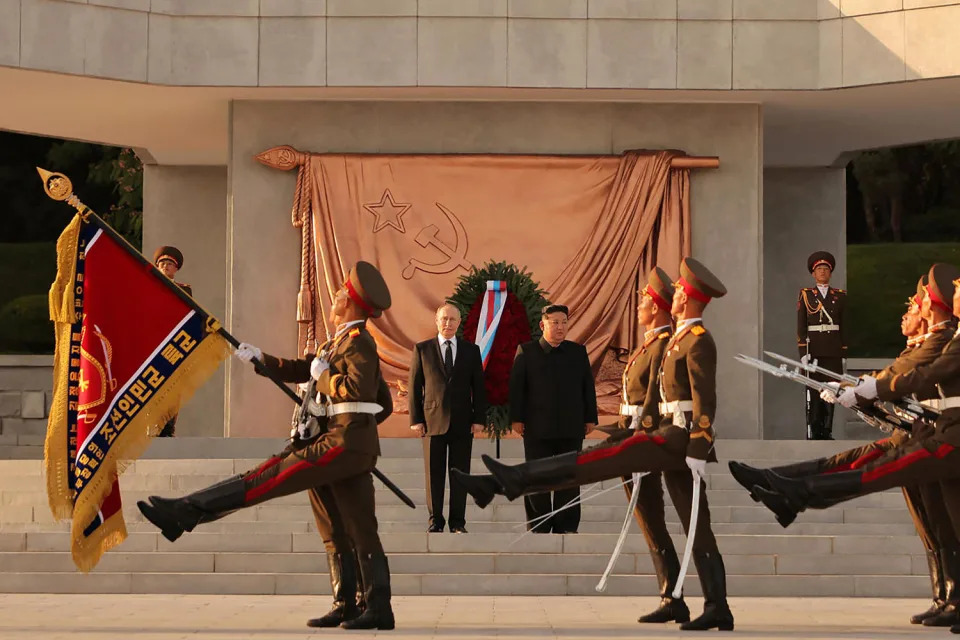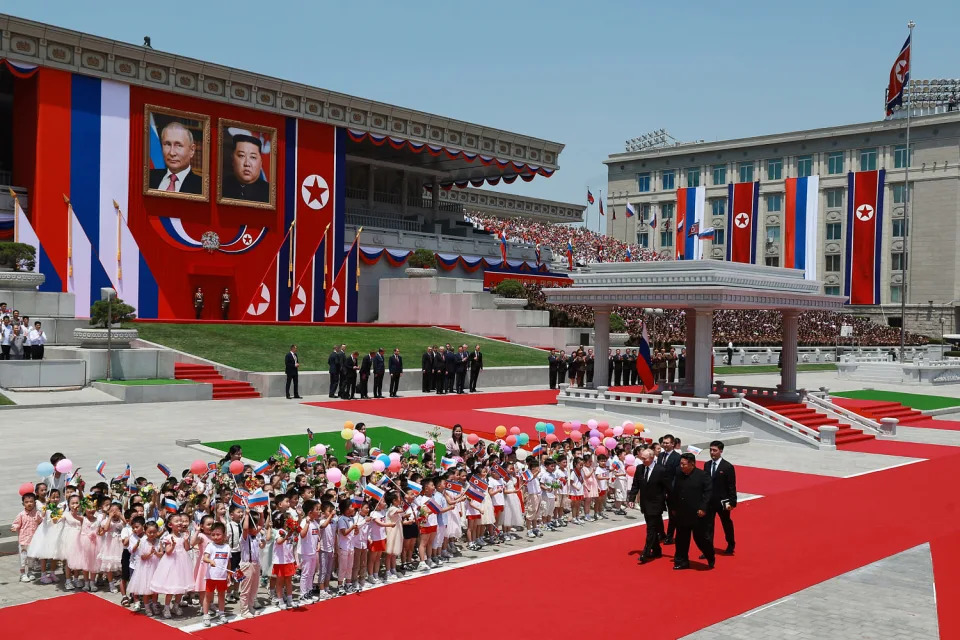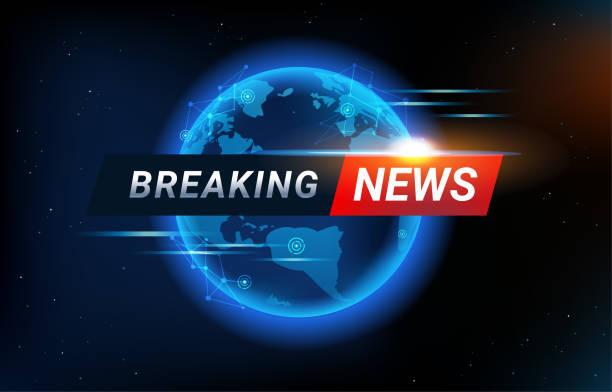Vladimir Putin and Kim Jong Un are taking their relationship to the next level — one with security implications that go far beyond their two countries.
On Wednesday, during a rare visit to North Korea by the Russian president, the two leaders signed a comprehensive strategic partnership agreement that included a pledge to “provide mutual assistance in case of aggression.”
The pact, which comes as Putin is seeking greater assistance from North Korea in his war against Ukraine, has the potential to scramble the balance of power in East Asia, reinforcing growing security ties between the United States and its allies South Korea and Japan, and raising tough questions for China.
The pact also makes it even more difficult to halt North Korea’s nuclear ambitions, which include ballistic missiles capable of reaching the continental U.S.
The agreement requires both Russia and North Korea to provide immediate military assistance if the other country is the subject of armed aggression, essentially reviving a 1961 mutual defense agreement that was replaced by a much weaker one in 2000.
“It’s certainly the closest they have been since the Cold War,” said Victor Cha, senior vice president for Asia and Korea chair at the Center for Strategic and International Studies, a think tank in Washington. “They both are claiming that their security is coupled together.”


Putin also said that Russia had not ruled out developing military and technical cooperation with North Korea under the deal.
U.S. officials have told NBC News that in exchange for military assistance in Ukraine, Russia might provide North Korea with the technology it needs to evade missile defenses or launch a nuclear missile from a submarine.
The U.S. and its allies condemned the visit to North Korea by Putin, who continued his travels Thursday in Vietnam.
“This should concern any country that cares about maintaining peace and stability on the Korean Peninsula, abiding by U.N. Security Council resolutions, and supporting the people of Ukraine,” a spokesperson for the U.S. National Security Council told NBC News on Wednesday.
South Korea and Japan also expressed concern about the impact of such military-technical cooperation on regional security. Their response to the deepening Russia-North Korea relationship could also have implications outside the region: On Thursday, South Korea’s presidential office said it was considering a change in policy that would allow for the provision of lethal military aid to Ukraine.
The agreement between Russia and North Korea says that if either country is invaded or pushed into a state of war, the other must deploy “all means at its disposal without delay” to provide “military and other assistance,” raising the possibility that a U.S. strike on North Korea could draw a Russian response.
But what the language means exactly is unclear, Cha said.
“I think what it really means right now is material assistance, as North Korea is now providing to Russia and as Russia is most likely providing to North Korea, in the form of military technology,” he said.
As for whether the two countries would actually go to war for each other, that is hard to say and “would depend on the circumstances,” he said.
More immediately, Putin’s visit to Pyongyang also underscores the failure of international efforts to stop North Korea’s nuclear advances, said John Delury, a China and North Korea expert at Yonsei University in Seoul.
“The United States and the Biden administration need to come to grips with the fact that North Korea policy is not working and hasn’t been working for a very long time,” he said.
“Obviously, we know the North Korean nuclear and missile programs have been moving ahead in leaps and bounds despite all the sanctions,” Delury continued. “And now you’re seeing North Korea make these strategic moves.”
AfriPrime App link: FREE to download...
https://www.amazon.com/Africircle-AfriPrime/dp/B0D2M3F2JT

A changing calculus
Russia, which is believed to have the world’s largest nuclear arsenal, had cooperated for decades with the U.S., China and others in trying to prevent North Korea from achieving its goal of becoming a full-fledged nuclear-armed state, participating in six-party talks in the 2000s and supporting an international sanctions regime that began in 1948.
Its calculus changed two years ago with the start of the war in Ukraine, which has drained Moscow’s weapons arsenal.
“Putin needs ammunition from someplace else, and the only place in the world that will give it to him is North Korea,” Cha said.
The U.S. first accused North Korea of supplying Russia with artillery shells in late 2022. The flow of weapons appears to have only accelerated since, with a State Department spokesperson saying this week that Pyongyang had unlawfully transferred dozens of ballistic missiles and more than 11,000 containers of munitions to Moscow in recent months.
North Korea and Russia deny the transfer of arms for use in Ukraine, which would violate United Nations Security Council resolutions that Russia has supported in the past.
Their relationship took a major step forward last September when Kim visited Russia’s far east, where he toured a Russian spaceport and Putin suggested that Russia could help North Korea build satellites.
In March, Russia blocked the continued monitoring of U.N. sanctions against North Korea with a veto in the Security Council, which could help North Korea advance its nuclear weapons program.
The deepening relationship between Russia and North Korea culminated Wednesday with Putin’s visit to Pyongyang, where he was greeted with a lavish ceremony and cheering crowds.

The two leaders also exchanged gifts. Kim received his second Russian-made Aurus limousine — both of which are in violation of Security Council sanctions banning the transfer of luxury items to North Korea — along with a tea set and a naval officer’s dagger. In addition to artwork depicting the Russian leader, Kim also gave Putin two Pungsan hunting dogs, a rare breed native to North Korea.
The two leaders say they are supporting each other in the face of politically motivated sanctions aimed at maintaining Western hegemony.
China, which is North Korea’s biggest trading partner and is also growing closer to Russia, has been muted in its response to Putin’s North Korea visit, which put it in a “difficult position,” Cha said.
Beijing is less ostracized than Pyongyang and Moscow, and is unlikely to risk its relations with other parts of the world to fully join forces with Kim and Putin.
“They care about what Europe thinks,” Cha said, “and North Koreans and Russians together are killing Europeans” in Ukraine.
Putin continued to look for support elsewhere Thursday during his state visit to Vietnam, which tries to be neutral in its foreign policy and has refrained from condemning the Russian invasion of Ukraine. The U.S., which upgraded its relationship with Vietnam last September, has rebuked Vietnam over the visit.
The two-nation Asia tour is a boost for Putin as he finds himself increasingly isolated internationally, Cha said.
“Putin is shaping the environment and conversation in Europe and in East Asia and after Vietnam, he’ll be shaping it in Southeast Asia,” he said.
“He actually likes this, and for him it shows that Russia is back.”
AfriPrime App link: FREE to download...


